
Developer: Gust
Publisher: Koei Tecmo
Platforms: PS4, Switch, PC
Tested on: Switch, PS4
Atelier Dusk Trilogy Deluxe Pack – Review
At the beginning of 2019, Koei Tecmo bundled the three Arland saga Atelier games into a Deluxe Pack for PC, PS4 and Switch. We noticed that the games were somewhat dated at times, but still held their own in our modern gaming society. The games found their place on our new platforms and allowed younger fans of the series to plow through these adventures as well. Longtime fans could also revisit the series, with some updated visuals, some extra functions and a lot of DLC which they might not have had the chance to get their hands on before. Now, a year later, we get to play through the Dusk Trilogy Deluxe Pack, which bundles the three ‘Dusk’ saga games, which take place in a different world than the Arland series. This time we dive into a trilogy in which alchemy is actually a rather forgotten art than something that is common practice. As the original games date from 2012, 2013 and 2015, we were curious to see if their cute visuals would grace our console(s).
Story
For the Dusk Trilogy, we are thrown in a different world than the Arland series, namely one where the art of Alchemy is more a lost profession rather than common knowledge. While alchemists in the other games were also people who were somewhat idolized, in these games they are somewhat unicorns as many don’t even know what Alchemy is. That being said, in the first game, you’ll be looking to find your long-lost sister, who is seemingly trapped in a spirit world. You’ll only have a limited time to save her. The second game is actually the third chronologically in the Dusk series, and it revolves around the world shriveling up and slowly becoming a huge wasteland. The third game is somewhat more lighthearted in its intro and presents us with the option of picking out of two characters, including a male protagonist. You’ll be serving as a government official in this one, which is very different than the other games.
As always, the storylines in the Atelier games may touch a few sentimental topics, that can trigger certain emotions, they still remain perfect games for a younger audience, as well as RPG veterans. The games always have a female lead (except for the selection option in the third game), which is also a nice change of pace compared to many other games in the genre. You’ll get a lot of information before you can actually sink your teeth in the gameplay portion, but the many voiced conversations add a lot to the value of the series.
Graphics
Graphically it is quite noticeable that these were games on the previous generation of consoles. The anime-esque appearance of the game is very forgiving on the rough edges of the games, but many environments feel a bit empty and certain movements feel a bit like you’re controlling wooden puppets. That being said, the games rightfully attract a female audience thanks to its visuals which involve bright colors, cute characters that don’t have bombshell proportions and of course the many adorable monsters that cross your path. The overall visuals obviously look better in handheld mode, as the small screen covers up a lot of rough patches, but it’s still nice to see the games come to life on our new generation of consoles on the big screen. We did notice a fair amount of frame drops, however, which is rather peculiar for games this ‘old’. It has to be said that Atelier Escha & Logy looks significantly better than the other two games. The latter has a slightly more appealing HUD than the other games as well.
Sound
The sound design has always been one of the series’ fortes. The music is catchy and relaxing, and while at times there is a lack of variation, things will never get annoying or overly dull. The voice acting in these games is simply wonderful. The voices are very enjoyable in both available languages, namely Japanese and English. Other than that you’ll have common sound effects which are standard RPG fare.
Gameplay
The Atelier Dusk Trilogy Deluxe Pack contains the three Atelier games that belong to the Dusk arc. In these three games, the world has lost its knowledge of the mystic trade of Alchemy and is now left to fend for itself. The game revolves around rather heavy topical issues, like dealing with a loss, seeing the world go to hell and so on. You’ll mostly be wading through dialogues, while gathering materials for your craft and of course all while battling a boatload of monsters that stand in your way.
You’ll notice that the overall offset of the three games is very similar as there is often one main issue with the world (or your character), and you seem to be the only (unknowing) alchemist available to fix whatever the hell is going wrong. The process of alchemy remains the same in all three games, where you have to collect a lot of materials in order to create different items. Some items can be used to strengthen your character, for usage in combat or simply to progress the story. Different combinations can still result in creating the same item, albeit with better or worse properties. The more you use your alchemy skills and use them for jobs as well, the more you will learn in the process.
Combat in all three games follows a turn-based format, in which you can opt for normal attack, skills or use items to gain some effects or heal your party. The three games also have some sort of positioning options in which you can initiate combat with an advantage when hitting your foes in the back, when still on the overworld, but even during combat back-attacks can do more damage. Overall things are simple in this department and don’t really need any further explaining.
Each of the game introduces small variations of the same options and tasks you’ll have to perform. These jobs are slightly different in all three games, but in the end, it’s pretty much the same format. You’ll either have to collect new items or create items by synthesizing things. You’ll notice that everything is straightforward, and more than often the jobs at hand don’t require such exotic items that you’ll have to wait for a big portion of the game to actually acquire the required items.
Conclusion
For those who never got to play the original games in this series, or simply want to play through the Dusk storyline(s) will certainly love this collection. The slightly updated visuals and the inclusion of many DLC options make these games their best versions yet. That being said, the pack comes at a very high price, which might not be that justifiable for games this old. In the end, Atelier fans will enjoy the solid mechanics, the stories and of course the bright and colorful adventures you’re embarking on. While some portions may feel dated, we know that the fans of this series will not mind sacrificing a few modern comforts to plow through this collection.
Atelier Dusk Trilogy Deluxe Pack - Review,
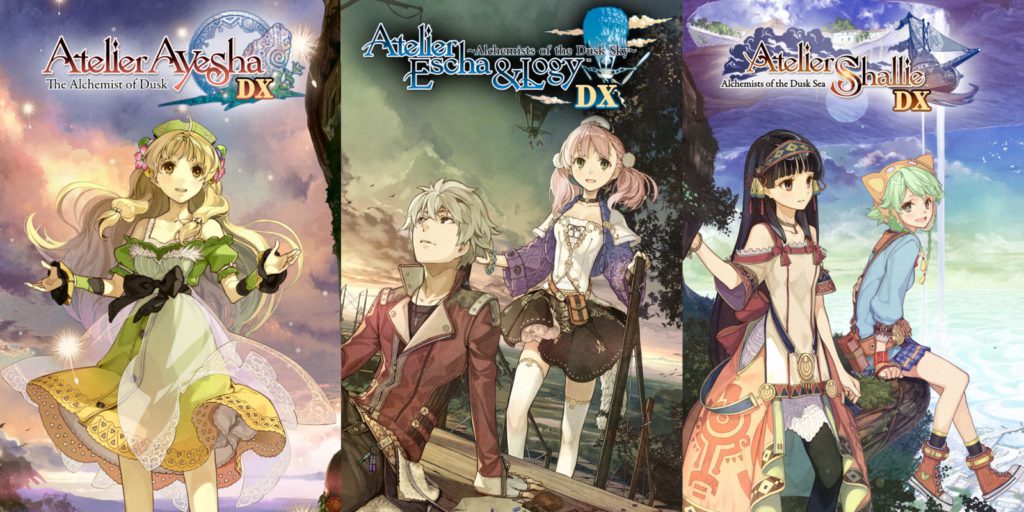
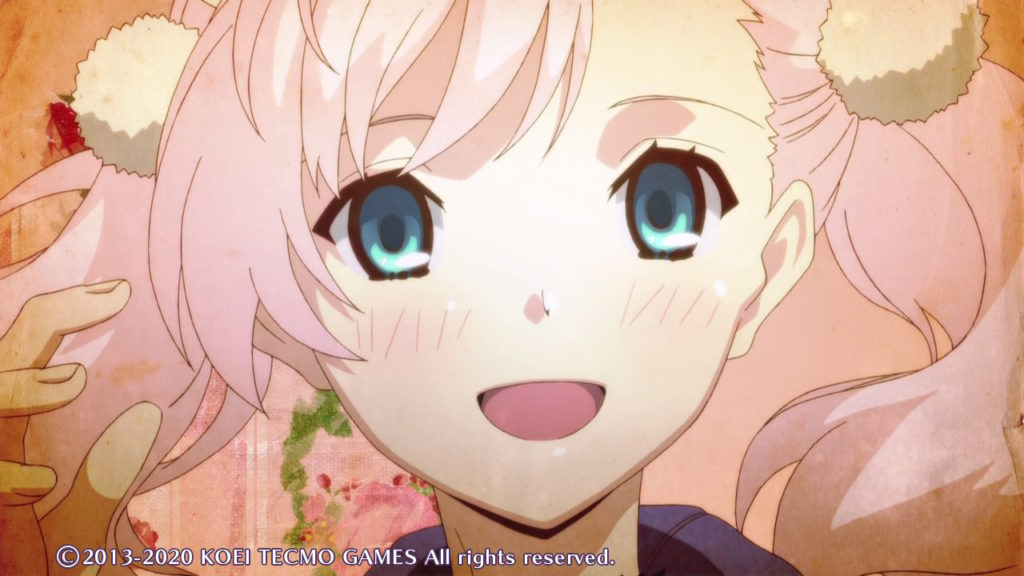
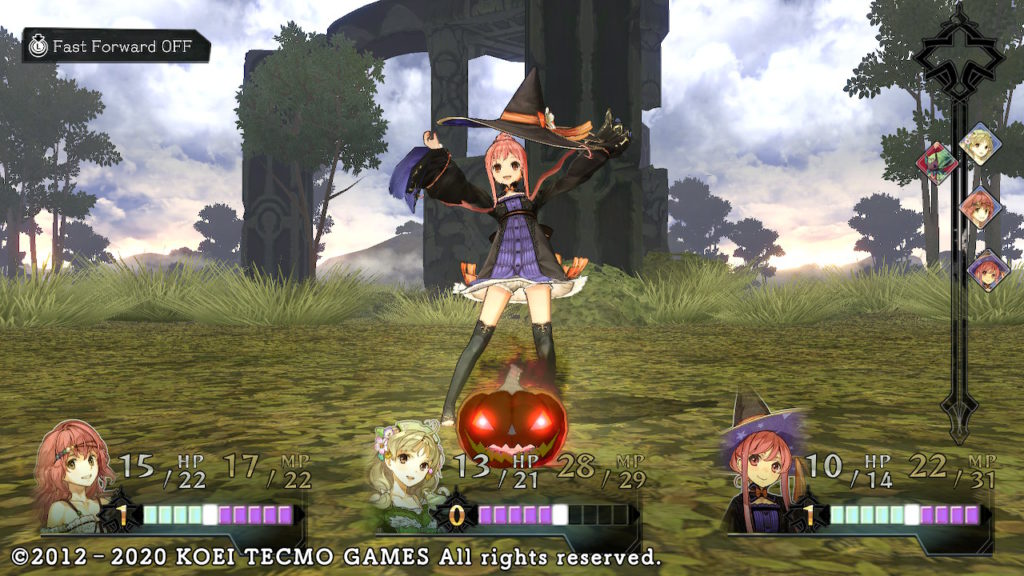
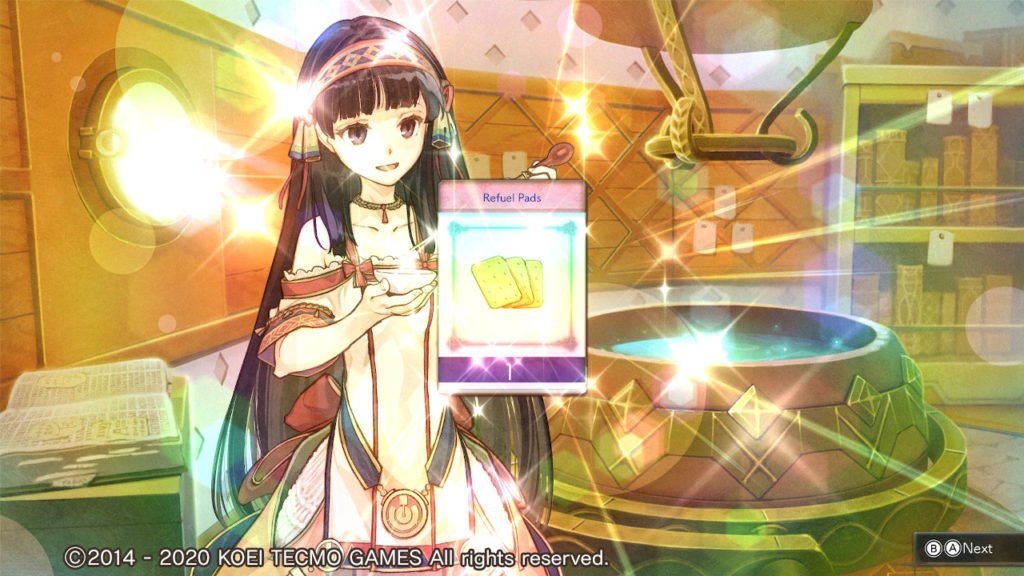
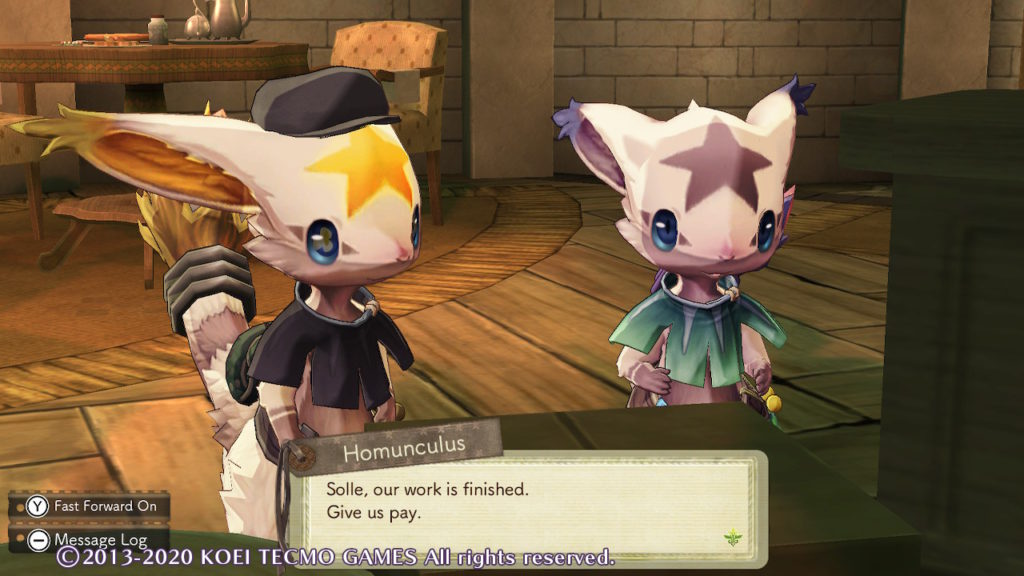

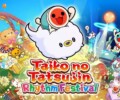


No Comments